I'm trying to make single linked list's fucntions.
but it reports an error. like this..
i am trying to a lot of thing about that. like using rvlaue reference, double pointer but nothings work..
what is the problem?
and can i return p pointer in getNode(int k) fucntion?
#include<iostream>
using namespace std;
template<typename T>
class SingleLList {
private:
template<typename T>
struct Node {
T data;
Node<T>* next;
};
Node<T>* head;
int size; // for List size
public:
SingleLList() :head(nullptr) {};
~SingleLList() {
Node<T>* delNode;
while (head->next != nullptr) {
delNode = head;
head = head->next;
delete delNode;
}
};
// add Node at index th
void addNode(int index, T data) {
if (index < 0)return;
Node<T>* newNode = new Node<T>;
newNode->data = data;
newNode->next = nullptr;
if (index == 0) { // add at 0
// empty
if (head == nullptr) head = newNode;
// not empty
else {
newNode->next = head->next;
head = newNode;
}
size++;
}
else {
Node<T>* prev = head;
for (int i = 1; i < index && prev != nullptr; i++) {
prev = prev->next;
}
newNode->next = prev->next;
prev->next = newNode;
size++;
}
}
// traversa
void showList()const {
Node<T>* p = head;
cout << "Single Linked List : [ ";
while (p != nullptr) {
cout << p->data << " ";
p = p->next;
}
cout << " ]" << "total elements are : "
<< size << endl;
}
// return k th Node by reference.
Node<T>*& getNode(int k)const {
if (head == nullptr || k > size) {
Node<T>* temp = nullptr;
return temp;
}
// Node<T>* p; < -- is it okay?
Node<T>* p = new Node<T>;
p= head;
for (int i = 1; i < k && p->next != nullptr; i++) {
p = p->next;
}
cout << " address of p : " << &p << endl;
cout << "value of p : " << p << endl;
return p;
}
// delete n Node in list
void deleteNode(Node<T>*& n) {
cout << "address of n : " << &n << endl;
cout << n->data << endl;
if (n->next == nullptr) { // if last node
delete n->next;
n = nullptr; //
size--;
}
else {
Node<T>* del_node = n->next;
n->data = n->next->data;
n->next = n->next->next;
delete del_node;
size--;
}
}
};
int main() {
SingleLList<int> sll;
sll.addNode(0, 4);
sll.addNode(1, 5);
sll.addNode(2, 6);
sll.addNode(3, 8);
sll.addNode(4, 9);
sll.showList();
sll.deleteNode(sll.getNode(5));
sll.showList();
return 0;
}
and in main i make Linked List like this.


